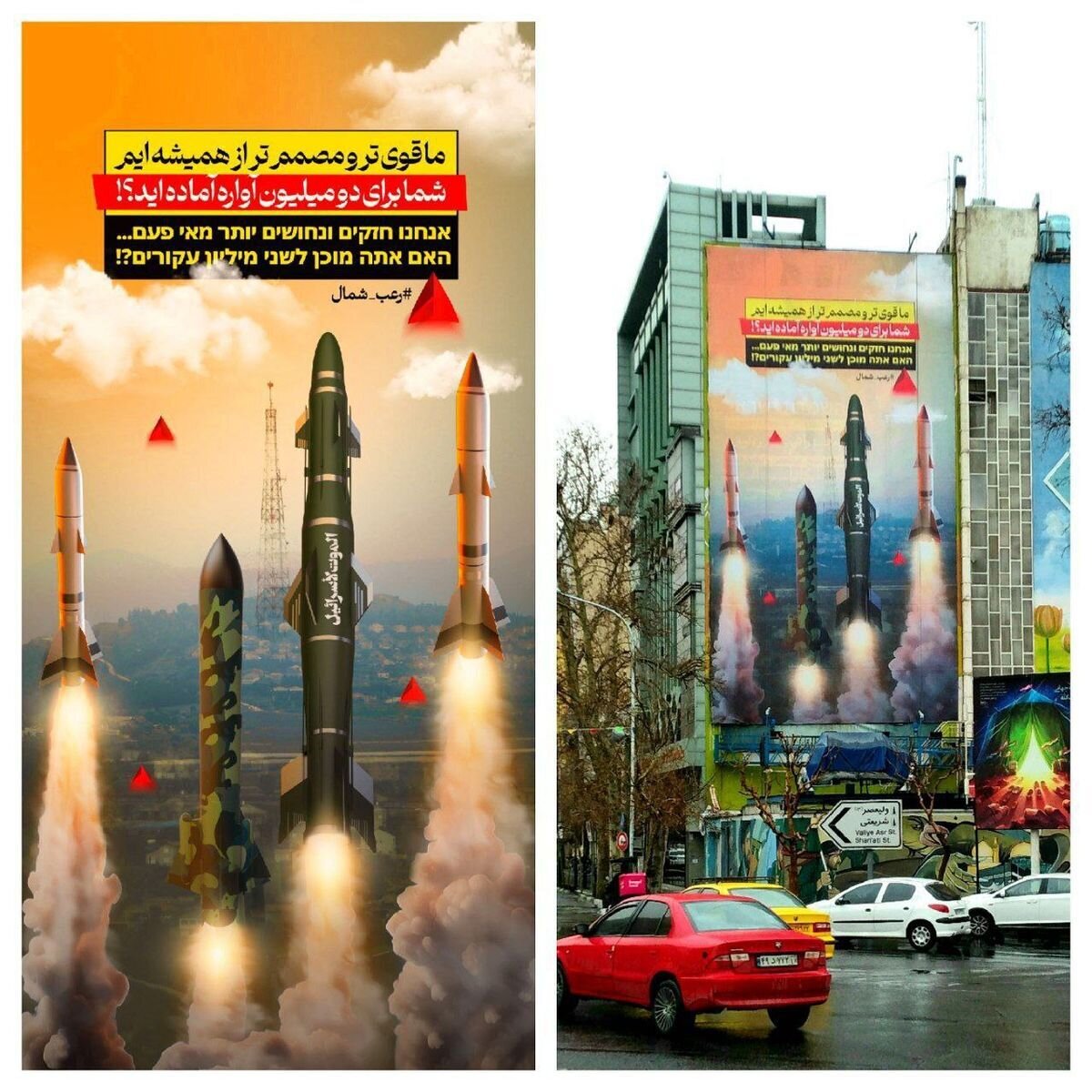Rallies, murals at Tehran’s Palestine Square

TEHRAN - Since the 1979 Islamic Revolution, Iranian people have regularly held huge rallies in different occasions to show solidarity with Palestinian people in the face of Israel’s brutalities and acts of aggression.
Pro-Palestine rallies have gained momentum since Israel launched war on Gaza on October 7. Iranians from all walks of life have held gatherings across the nation to voice support for the Palestinians in the besieged territory and denounce the regime’s atrocities.
Palestine Square in central Tehran, where the Palestinian embassy is located, has seen numerous pro-Palestine protests.
Protesters have stressed that the Iranian government and nation will spare no effort to support Palestinians in particular amidst Israel’s genocidal war on Gaza.
They have condemned Israel’s barbaric acts and massacres of civilians including children in Gaza over the past six months. The demonstrators have condemned certain Western countries, in particular the United States over their unwavering support for the apartheid regime.
People have burned effigies of Israeli Prime Minister Benjamin Netanyahu and stomped on his images during rallies to vent their anger at the ongoing genocide and mass massacres in Gaza.
Senior government officials and top military commanders have also delivered speeches during these demonstrations stressing that the Islamic Republic will continue to stand by Palestinian people.
Palestine Square murals
Apart from staging rallies, murals, banners and billboards have been unveiled at Palestine Square to direct global attention to Israel’s atrocious crimes.
Hours after Hamas carried out Operation Al-Aqsa Flood on October 7, a mural appeared on the exterior of a building at Palestine Square that hailed the Palestinian resistance movement.
Iran has stressed that it was not involved in the Hamas attack and did not have foreknowledge of the operation. Iranian officials have said that the Palestinian resistance fighters conducted Operation Al-Aqsa Flood independently.
A mural depicting a more advanced version of Iran’s Fattah hypersonic missile was unveiled in November last year at Palestine Square with a message reading “400 Seconds to Tel Aviv.”
It was in fact a response to anti-Iran threats and rhetoric made by Israeli officials.
Speaking at the 78th session of the United Nations General Assembly in New York in September, Israeli Prime Minister Benjamin Netanyahu threatened to use nuclear weapons against Iran.
For several times, the regime has threatened to take military action against Iran. It has assassinated Iranian nuclear scientists and stands accused of carrying out acts of sabotage at Iranian nuclear and military facilities.
Iran has repeatedly warned that any acts of aggression by Israel against the country will be met with a crushing response.
Iran’s president has already warned Israel about the consequences of any warmongering approach and military adventurism.
“Enemies, particularly the Zionist regime, has received the message that any tiny action against our country will prompt a harsh answer from the armed forces, which will accompany the destruction of Haifa and Tel Aviv,” Ebrahim Raisi said in April 2023 as the country marked the annual Army Day.
Murals and banner also appeared in Tehran after Iran hit the positions of terrorist groups in Syria and Pakistan and Israeli spy headquarters in Iraq’s semi-autonomous Kurdistan region in January 2024.
At Palestine Square, a mural on a building showed a missile being fired, with a caption warning in Persian and Hebrew, “Prepare your coffins.”
That was a stark warning that Iran will not hesitate to defend its national interests in the face of enemy plots.
In February, a mural adorned with images of missiles and phrases in Persian and Hebrew was unveiled at Palestine Square with a message, "We are stronger and more determined than ever."
The creation of the mural highlighted Israel’s vulnerability and the blows dealt to the regime by the Palestinian resistance.
After the assassination of Hamas official Saleh al-Arouri in an Israeli drone strike in Beirut’s southern suburbs of Dahiyeh in January, a large-scale mural was designed with a message in Arabic, Persian and Hebrew. The message indicated that Israel’s assassinations will fail to bring the resistance to its knees.
In the wake of the Yemeni army’s attacks against Israeli-linked ships in the Red Sea, a mural at Palestine Square drew attention to the role of regional resistance in supporting Gazans which read, “The sea is always unsafe for Pharaohs.”
During the past months, Yemen’s Ansarullah movement has been staging missile and drone attacks against vessels heading to Israeli ports in support of Palestinians in Gaza.
The movement says the attacks won’t stop unless Israel ends its war of genocide on Gaza.
The latest mural at Palestine Square was unveiled on Wednesday. It depicts Brigadier General Mohammad Reza Zahedi, a senior commander in Iran’s Islamic Revolution Guard Corps, who was assassinated by Israel in Syria on Monday.
A caption appears on the banner warning Israel, “We will punish you and make you regret.”
